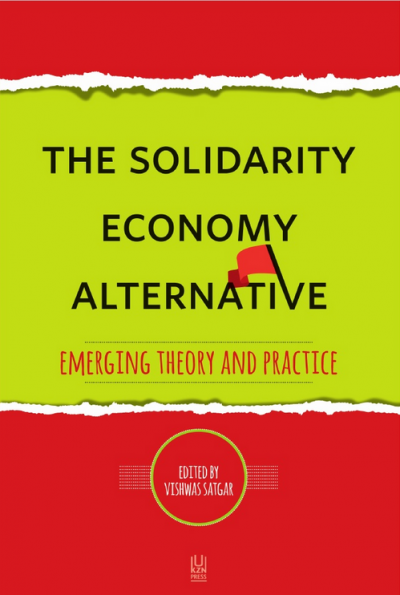
In response to elite policy-making and the deepening globalcapitalist crisis, the world has seen the rise of countermovements,such as the World Social Forum, the Arab Spring, the Indignados in Spain, anti-austerity street protests in Greece, the Climate Justice Movement, and the rise of the US Occupy movement, which demand that the interests of 99 per cent of the people prevail over those of small elites. It is in this context that the solidarity economy alternative finds resonance and grassroots expression.
However, the championing of alternatives such as the solidarity economy is not as straightforward as it may seem. Powerful social forces shaping the global political economy and working to maintain a neoliberal capitalist order strive to assimilate and tame anti-systemic challenges. Grassroots initiatives for transformation are contested from above. As a result, the solidarity economy alternative is often presented as an adjunct to the discourse on the social economy. Therefore, to really appreciate what it means, the veil around the social economy has to be pierced.
This chapter sets out why this volume presents the solidarity economy as a departure from and alternative to the social economy response to the global crisis. First, it addresses the question: why go beyond the social economy? Second, it frames the broad understandings of the crises of capitalism shared by the various contributors as well asthe social forces championing the solidarity economy. It seeks to show how this volume goes beyond the spectacle of crashing economies and photo shoots at G20 summits or media coverage of glitzy World Economic Forum meetings to critically understand what the global crisis really entails, whose crisis it is, and why it cannot be resolved by elite policy-making. It shows how ruling elites have failed to grasp that it is not the banks that are ‘too big to fail’, but rather humanity and nature. Third, it shows how the social economy is instrumentalised from above by situating it within the global development apparatus and discourse. Finally, it sets out a synoptic overview of the key themes and empirical insights at work in the volume, ultimately presenting the solidarity economy as an alternative political economy in which the interests of the 99 per cent, in all their humanity, would prevail.
Go to the GEO front page

Add new comment